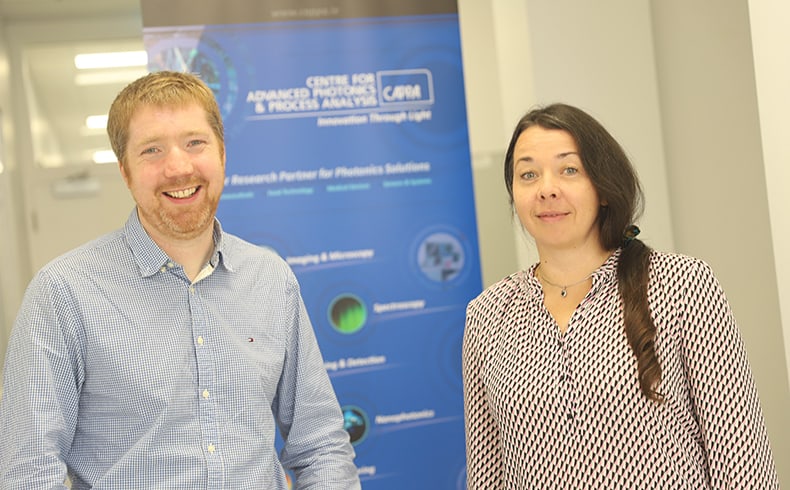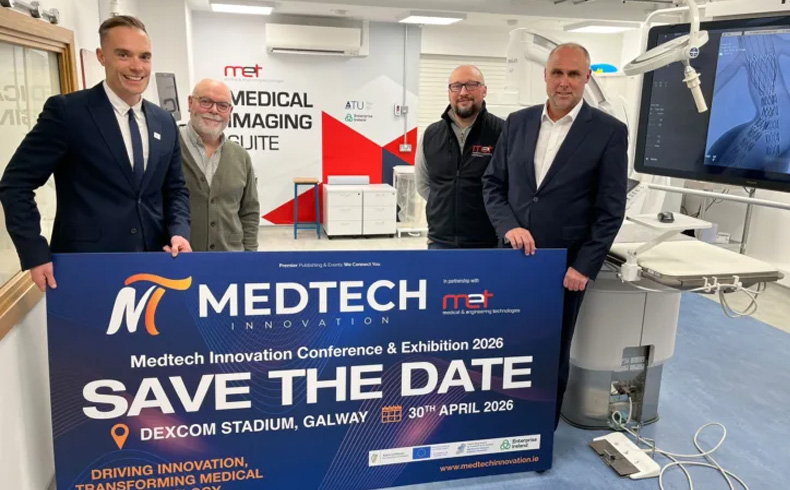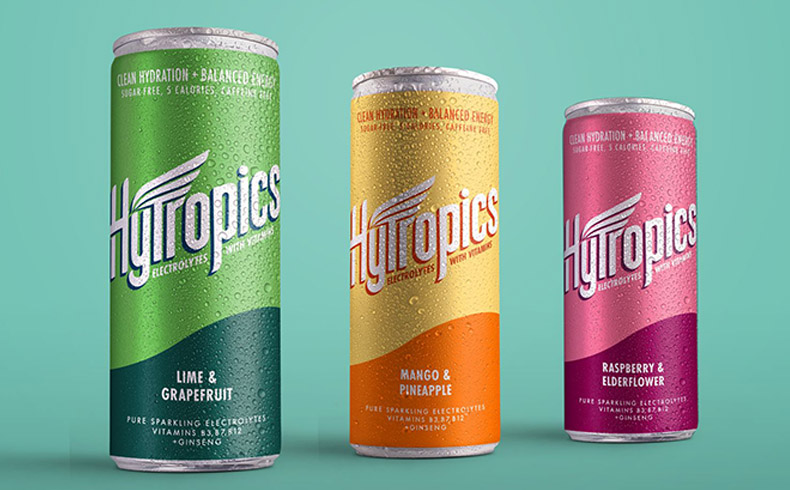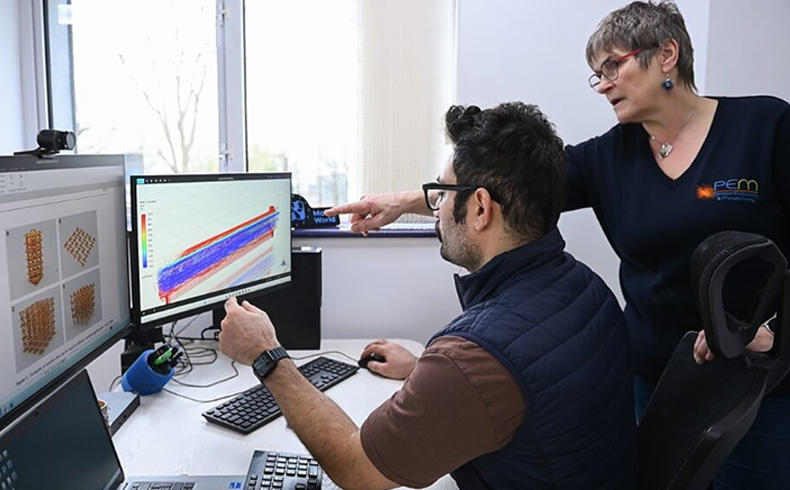The Centre for Advanced Photonics and Process Analysis (CAPPA) is delighted to announce two of their researchers, Dr Maria Kotlyar and Dr Anton Walsh, have received funding as part of the highly competitive Science Foundation Ireland (SFI) Irish Research Council (IRC) Pathway Programme. Dr Walsh’s project InfraRed Laser Sensing for Irish Agricultural Emissions (IRLS – AGRE) received €540,000 in funding. Dr Kotlyar’s project APTIMON, received over €550,000 in funding. This brings to over €14 million the total amount of funding secured by the CAPPA research centre in the past 6 years.
On August 29, Minister for Further and Higher Education, Research, Innovation and Science Simon Harris announced an investment of €28.5 million across 53 research projects to support Ireland’s emerging research talent. The projects are funded through the SFI-IRC Pathway programme, a new collaborative initiative between Science Foundation Ireland (SFI) and the Irish Research Council (IRC) to support early career research across all disciplines and to encourage interdisciplinary approaches. Of the 53 projects supported under the first round of this new partnership programme, 36 projects will be supported in science, technology, engineering and maths (STEM) and 17 will be supported in arts, humanities and social sciences (AHSS). The awards will enable postdoctoral researchers to conduct independent research for a four–year period and will provide funding for a postgraduate student who will be primarily supervised by the awardee. MTU was the only Technological University to receive funding during this round.
Dr. Niall Smith, Head of Research welcomed the news: “These two awards address globally important challenges in environmental sustainability, nutrition and food security. The outcomes of the research will significantly improve capabilities to monitor emissions in near-realtime thereby improving our understanding of the sources of the emissions whilst also enabling us to interrogate the efficacy of any mitigations with greater precision than was previously possible. Critically, the awards underscore the efforts of MTU to boost our pipeline of talented researchers. This is crucial to the university’s success in making our region an exemplar of healthy, sustainable and responsible living. The awards are also a recognition of the sustained impact of photonics research in our CAPPA Research Centre.”
The InfraRed Laser Sensing for Irish Agricultural Emissions (IRLS – AGRE) project will be conducted with three collaborators from University College Cork (UCC), Teagasc and University of Bari. Agricultural emissions include greenhouse gases, which cause climate change, and air pollutants, which cause illness. To reduce emissions effectively, you first need to be able to measure them with high accuracy. This is difficult for agricultural emissions, as there are many hot spots on farmland which need to be monitored and the settings are harsh on the sensor technology. The project will develop new types of sensors specifically for agricultural settings, targeting the three most important gases, methane, nitrous oxide and ammonia. The sensors will be benchmarked against commercial sensors and trialled in the field, on a farmland setting.
Dr Maria Kotlyar received funding for her project APTIMON which received funding for 4 years. The continuous monitoring of bacterial growth is an essential process undertaken in academic research and clinical environments to provide valuable information on the nutritional and energy requirements of microbes, as well as to identify conditions that impact their survival and have an antimicrobial effect. The project will develop a new trace gas sensor that will monitor the metabolic activity of bacteria via the carbon dioxide expired. The sensor is based on photo-thermal spectroscopy and will use a robust silicon based Fabry-Perot cavity to enhance light absorption and a photonic integrated circuit to read out the induced change in refractive index monitor.
You can learn more about the currently active research projects at CAPPA here and more about the work CAPPA has conducted in the agriculture sector here.
This article was first published by CAPPA.



